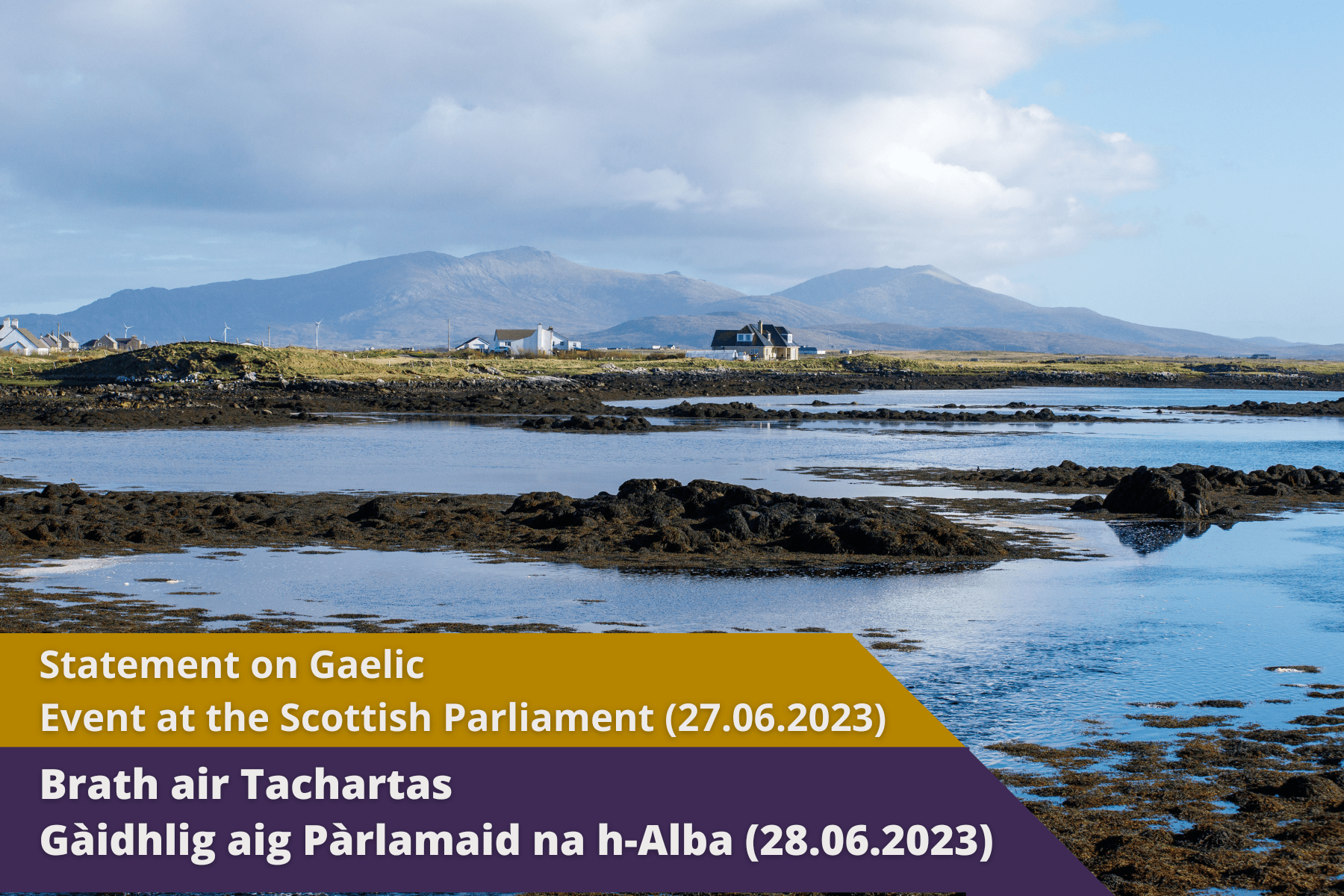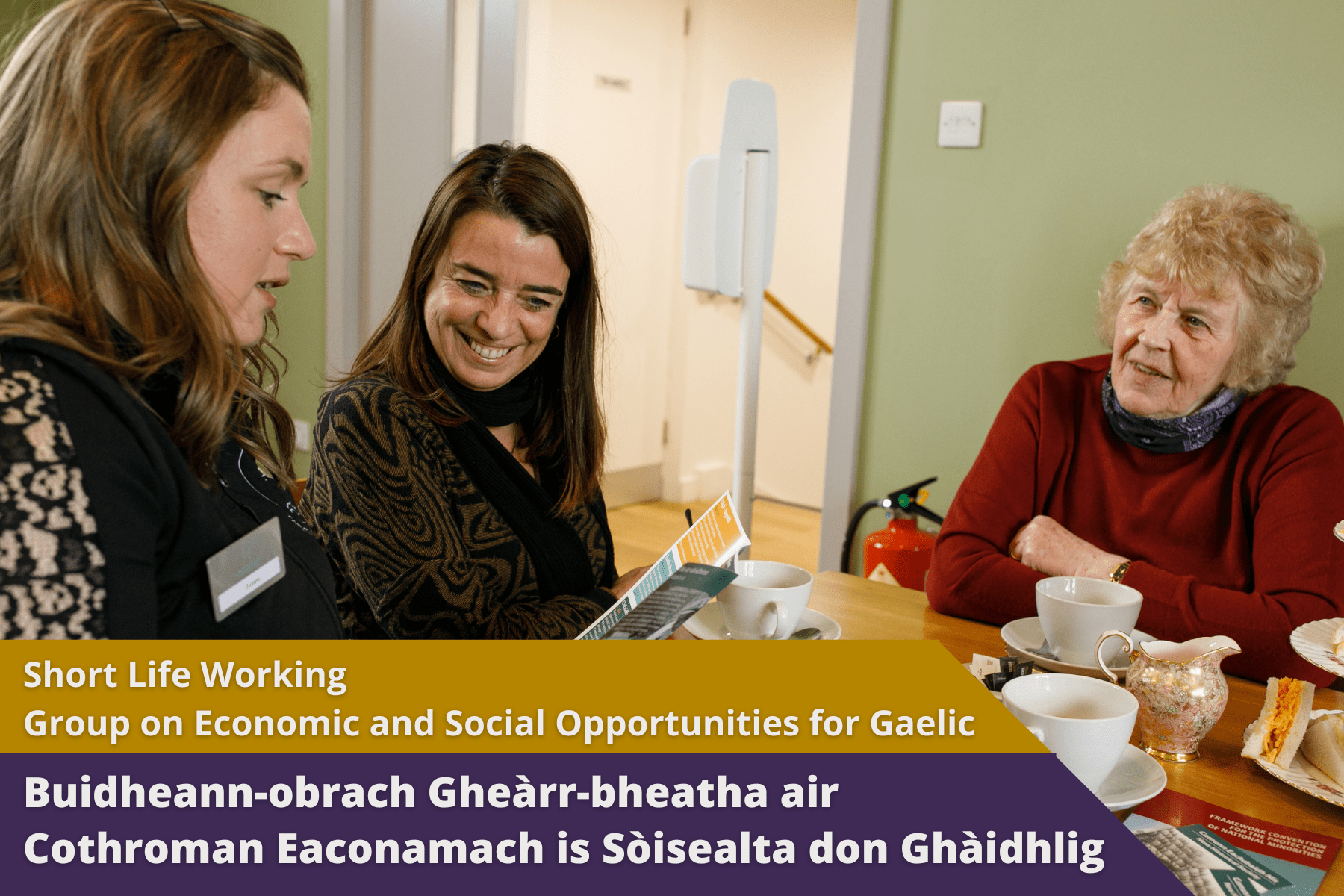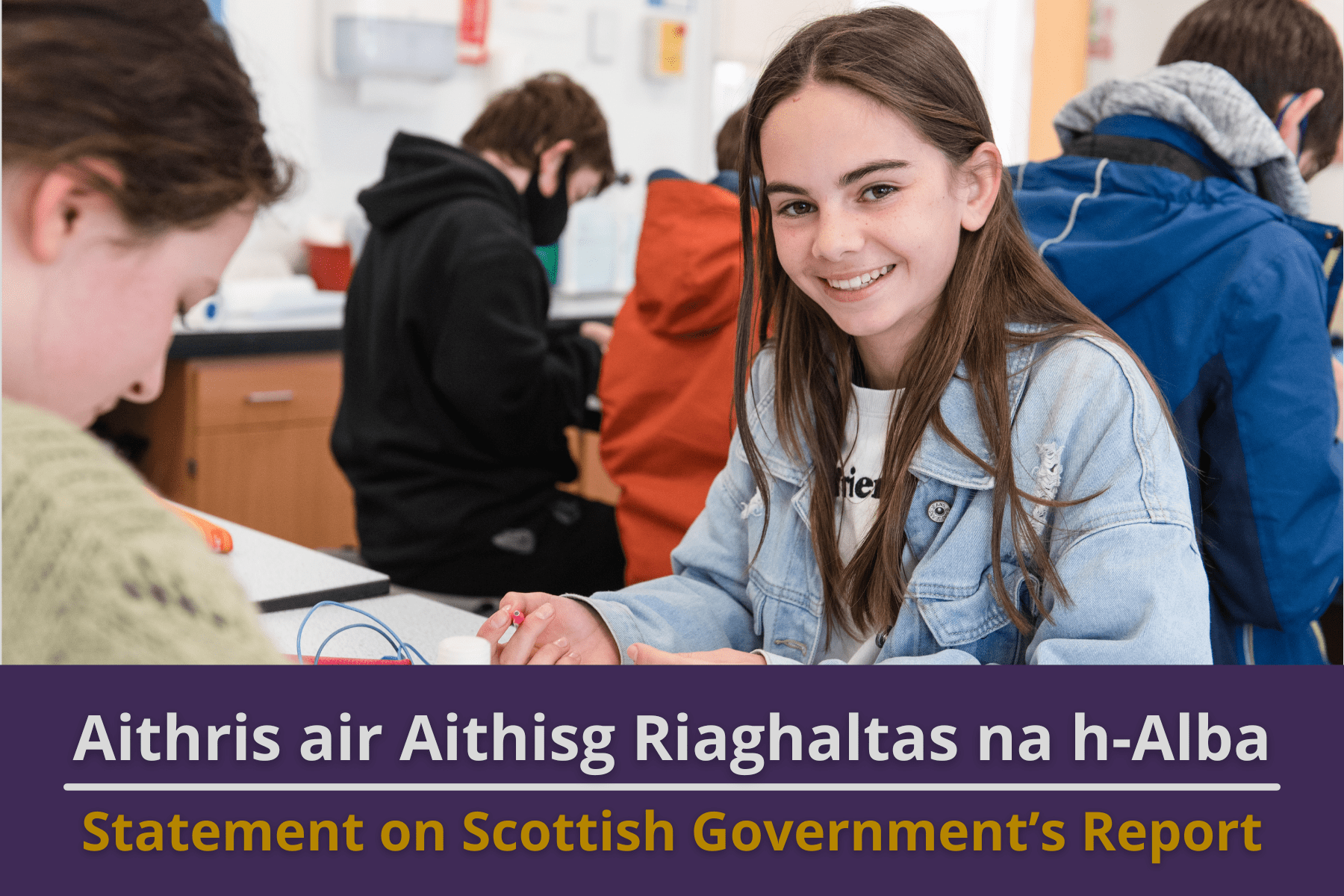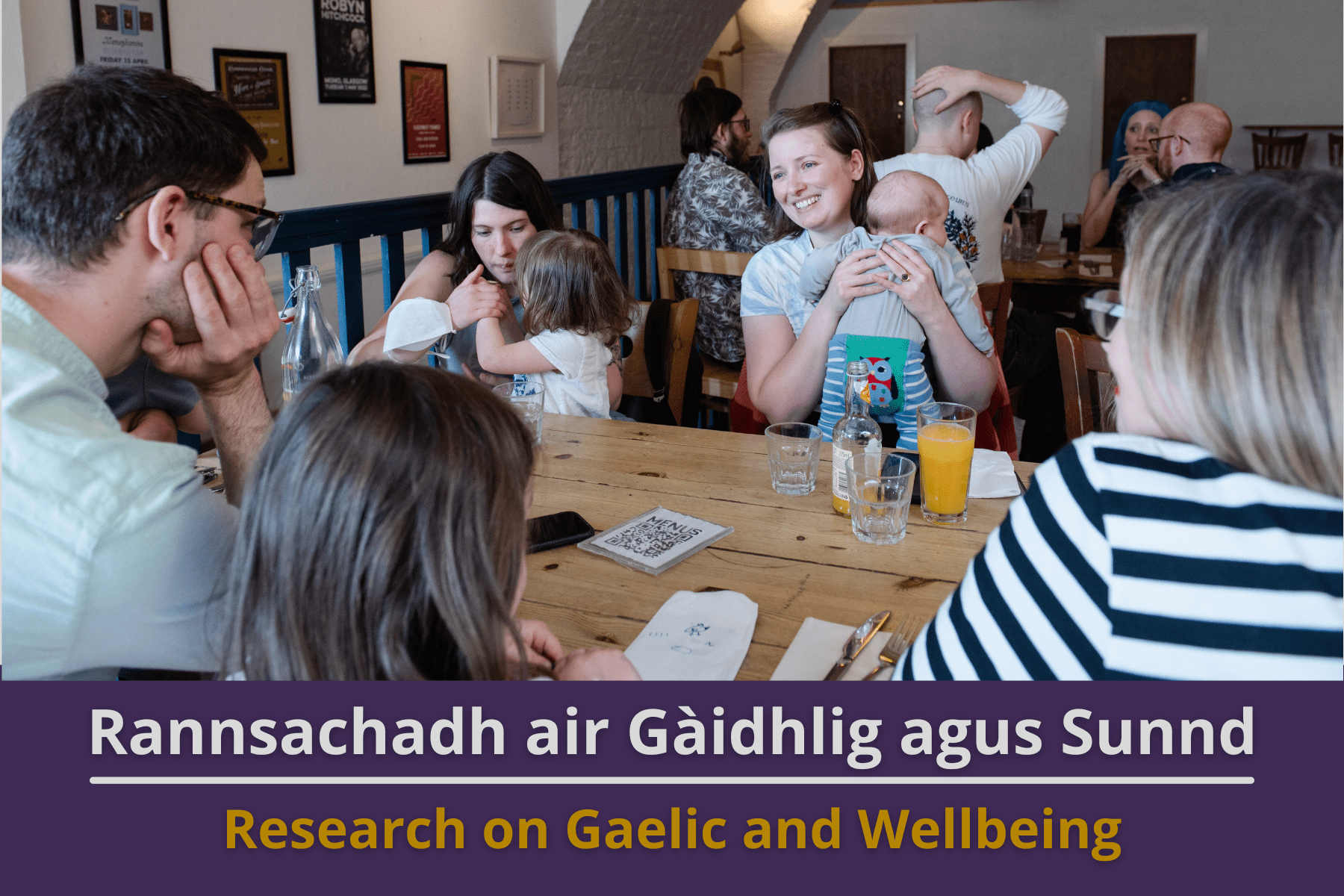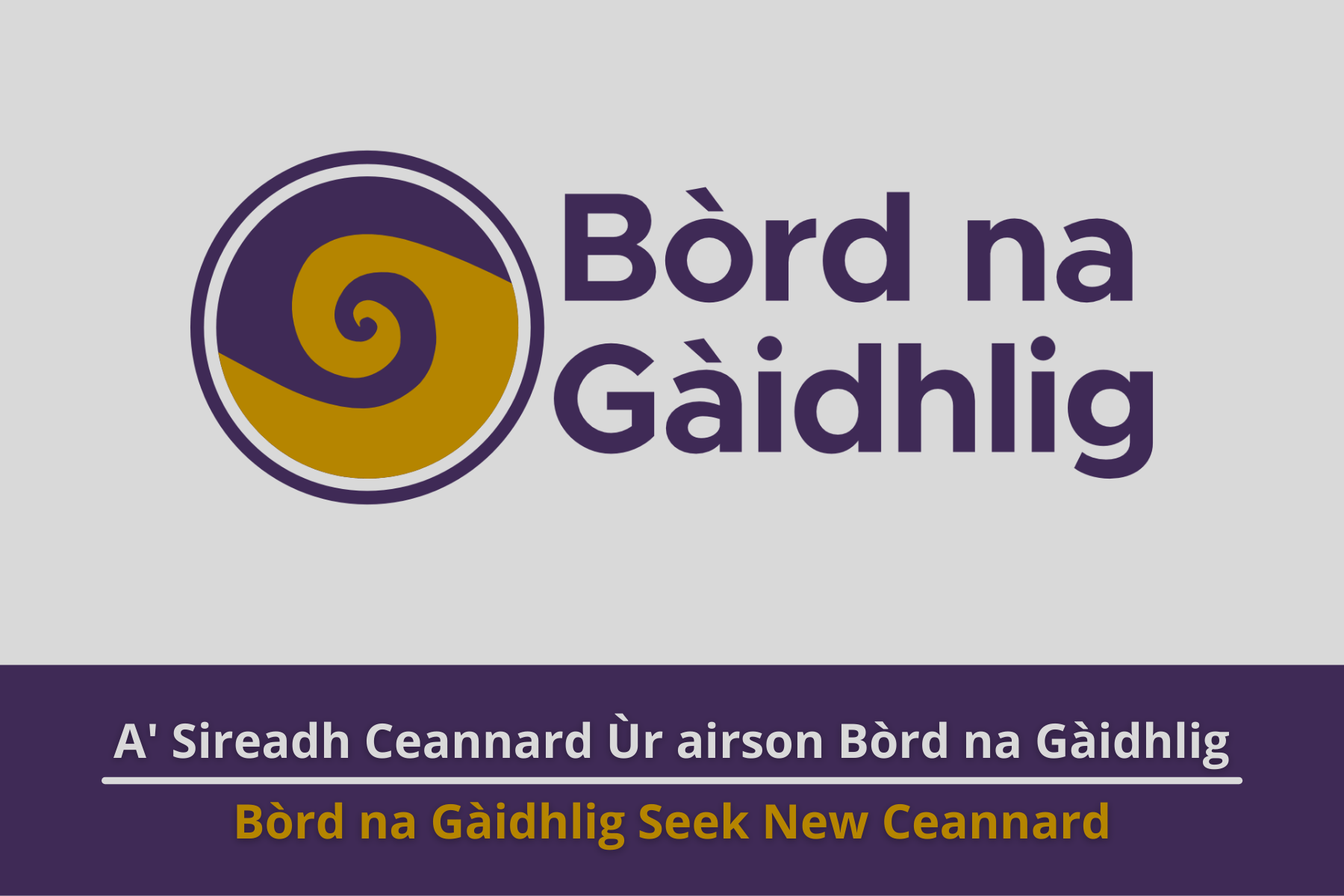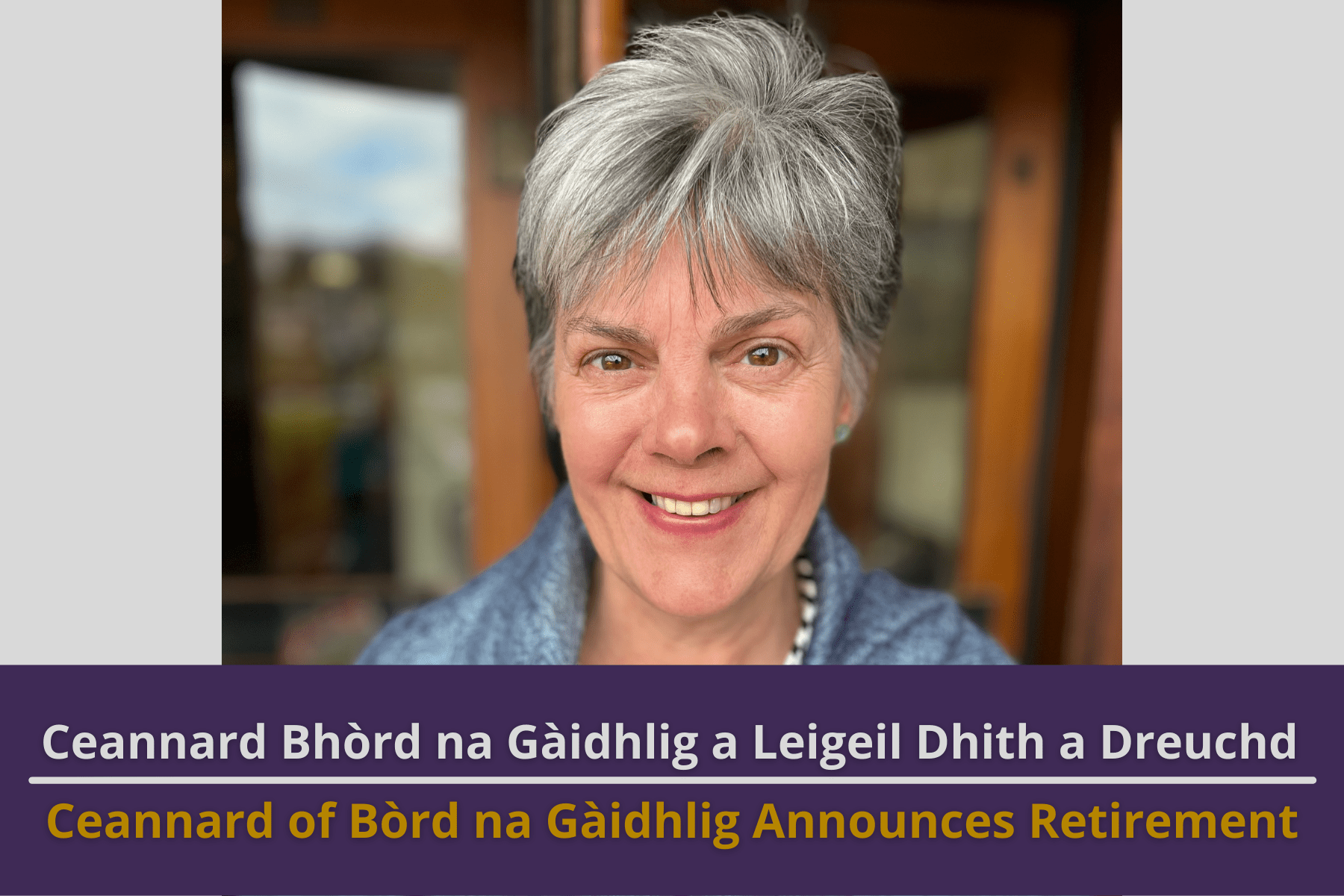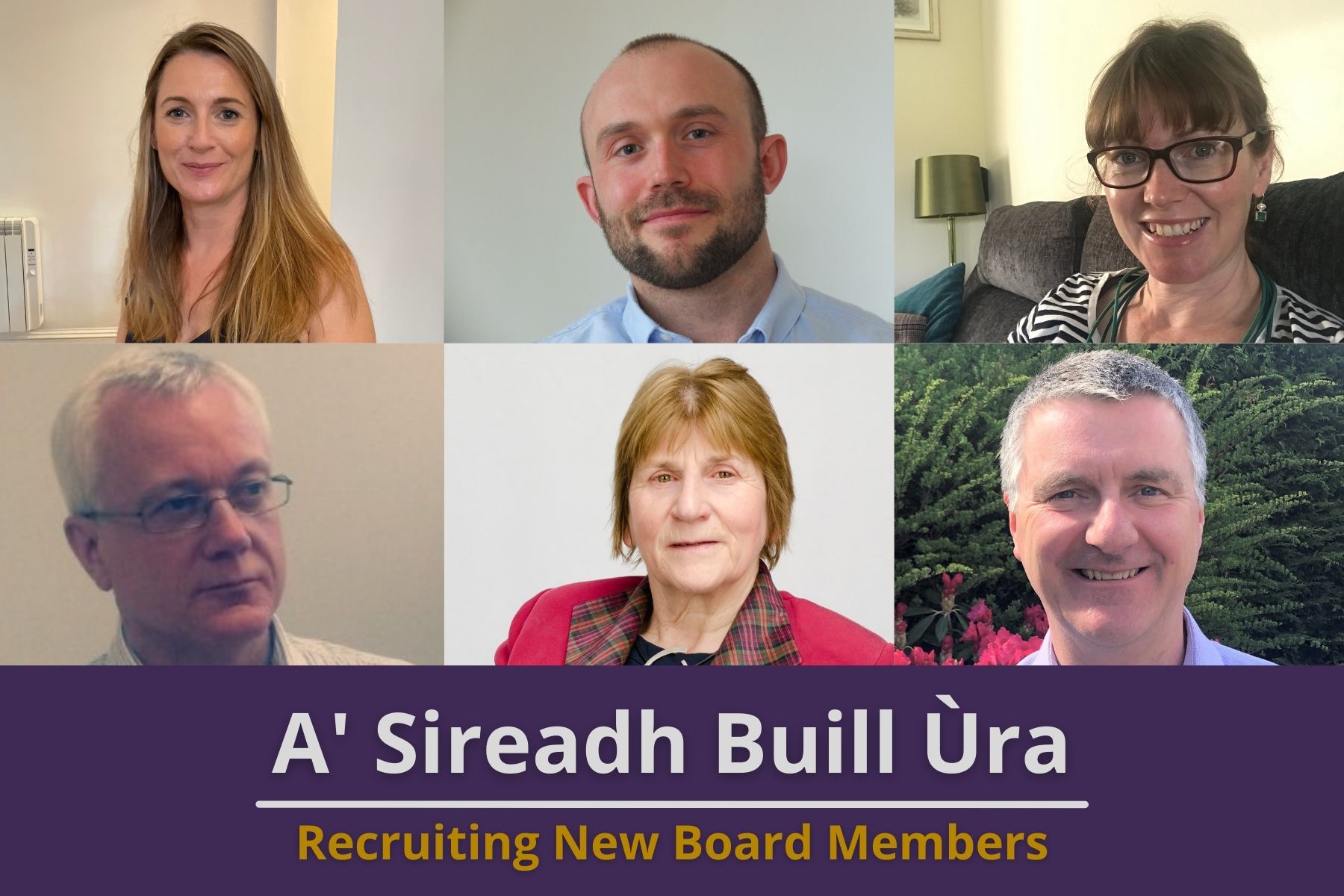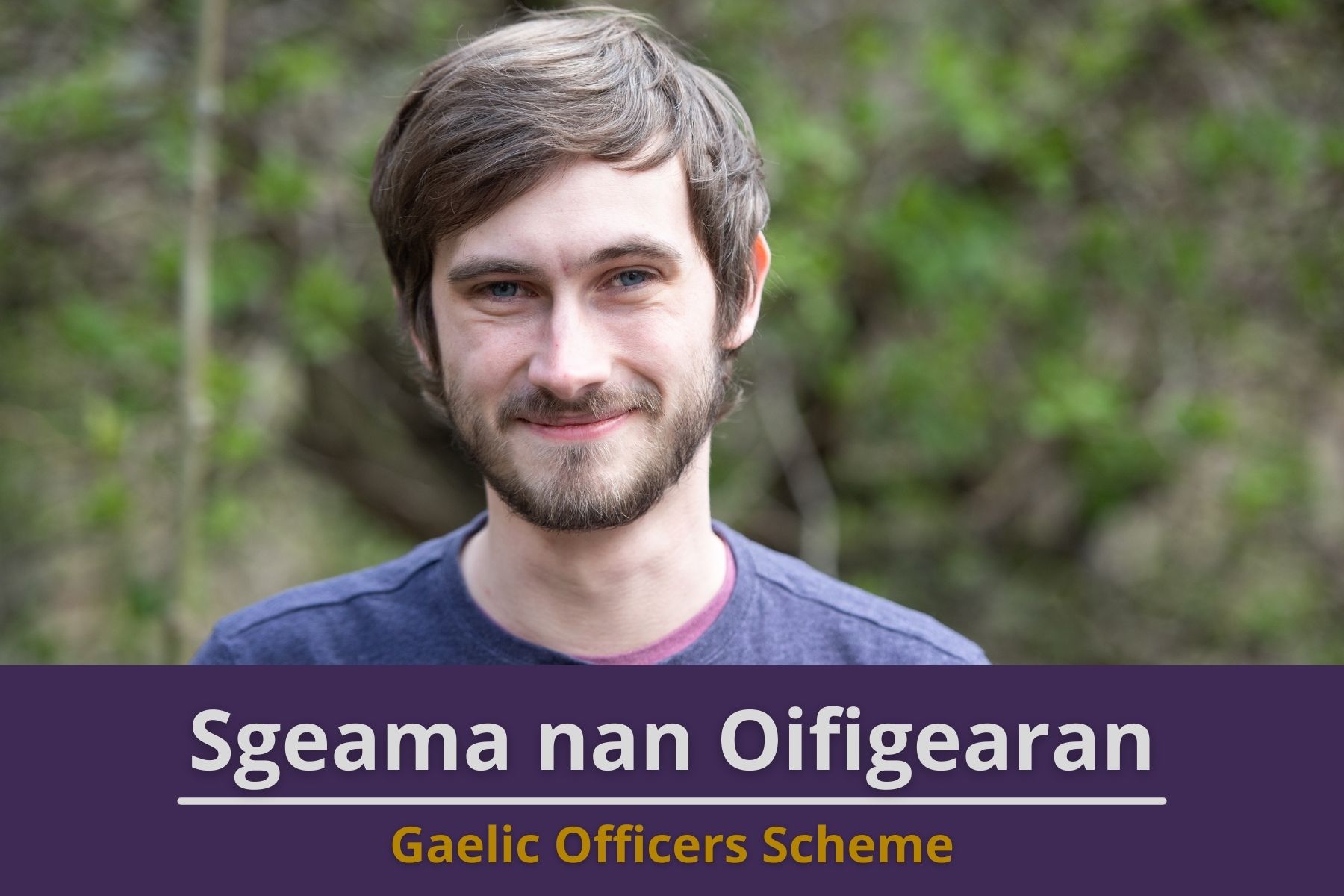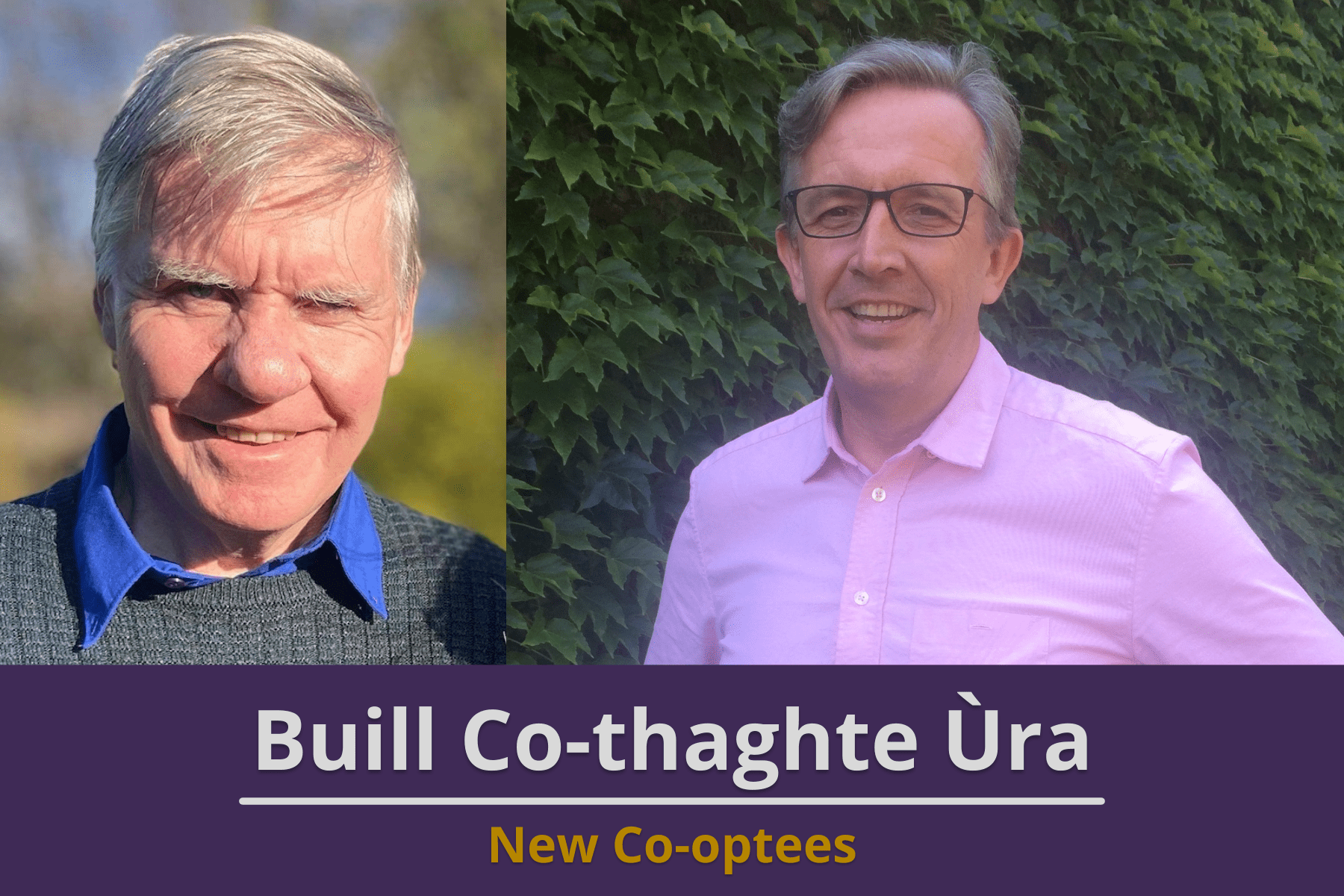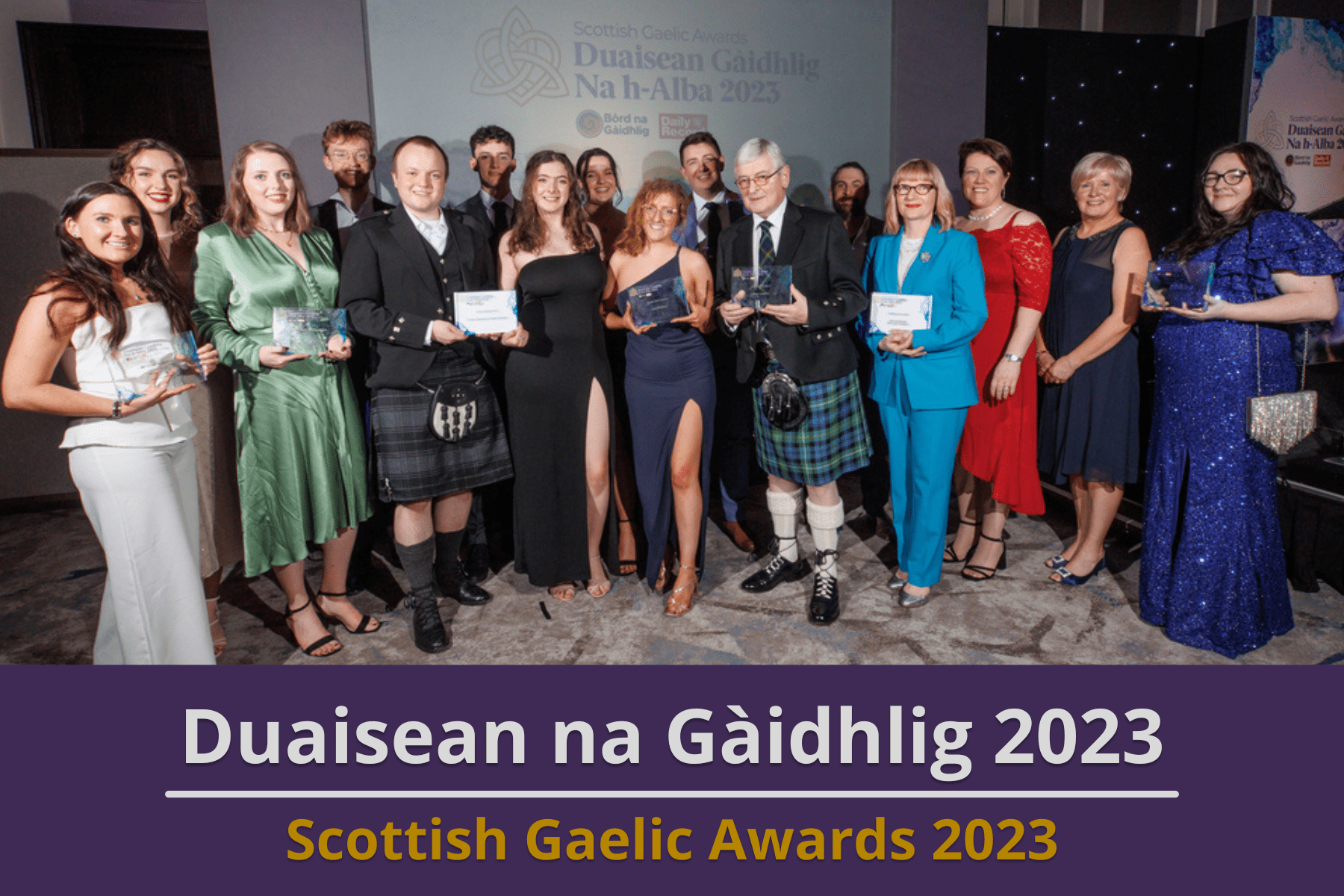Mary McInnes, Chair of Bòrd na Gàidhlig said about the event:
“We welcome today’s event about Gaelic in the Scottish Parliament. Bòrd na Gàidhlig continues to work with communities and organisations in the Western Isles and elsewhere to increase the use of Gaelic as a community language.
“This follows the recognition in the third National Gaelic Language Plan that the traditional Gaelic communities face challenges in retaining economically active populations and that innovative solutions are critical in relation to employment, housing, transport, childcare and health care.
“It is vital that our Gaelic communities are at the forefront of consideration at the Convention of the Highlands and Islands and Regional Economic Partnership, and that their voice is represented in consultations on issues such as HPMAs, ferry services, housing and land reform.
“Bòrd na Gàidhlig received additional funding from the Scottish Government in 2021 and 2022 to support a network of Gaelic officers, who work with 20 community organisations in the islands, to strengthen both the use of Gaelic and its development. This scheme has awarded almost £1million since its inception two years ago.”
You can listen to the BBC’s report on the event on Aithris na Maidne here. The piece runs from 0:13:05 to 0:20:50.

